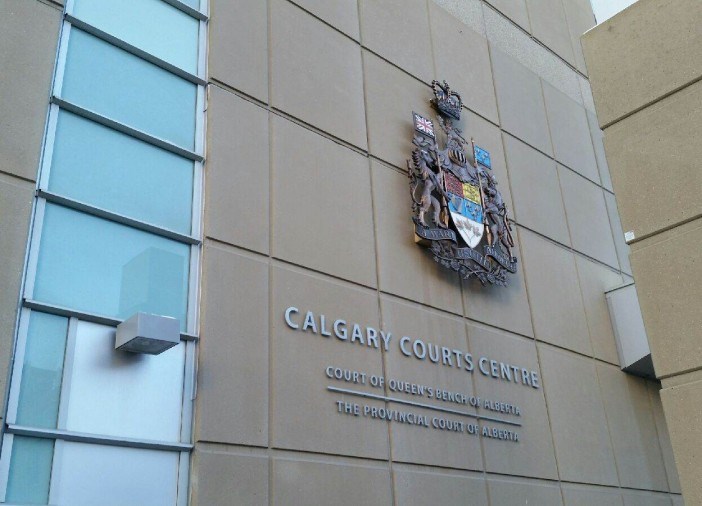BANFF – Albert George Muckle has been denied an application for parole.
Muckle, who was designated a dangerous offender in 2006, was before the Parole Board of Canada on Oct. 30 for consideration of applications he made for parole after serving 14.5 years in prison. His request for full, or day parole, was denied.
"To make its decision, the board must determine whether you will not, by reoffending, present an undue risk to society before the expiration of your sentence," wrote the board in its decision. "The board must also consider whether your release will contribute to the protection of society by facilitating your reintegration into society as a law-abiding citizen."
Because of Muckle's status as a dangerous offender, he is serving an indefinite prison sentence, which means his incarceration has no end date, although he can be considered for parole. The board took note that as a dangerous offender, "the risk assessment criteria must be carefully considered and applied in order to ensure the protection of the public.
"The board is also required to consider whether your sentence has been tailored to fit the circumstances of your case, and ensure that your continued incarceration does not become grossly disproportionate to your case."
Muckle was deemed a dangerous offender after being found guilty of aggravated sexual assault and attempted murder of a young woman in Banff on July 11, 2005.
On that date, Muckle met a young woman and her male friend outside a Banff nightclub and smoked a cigarette together – according to the parole board's review of the facts of the offence.
The male friend went to use the ATM and upon returning, saw Muckle and the young woman walking away from the club.
"The victim was not located for hours and when discovered, was found partially clothed, bloodied, bruised and unconscious," wrote the board. "The victim had to be airlifted to hospital where it was learned she had been sexually assaulted and strangled to the point that her brain had been deprived of oxygen, leaving her in an unconscious and vegetative state, in critical condition and on life support."
During the parole hearing, Muckle refused to discuss the offence or how his actions affected the victim, who remains in a vegetative state.
The 40-year-old Indigenous offender also has lengthy criminal history, including threats, property crimes, weapons possession and assaults. The board noted Muckle's offending behaviour escalated in severity, resulting in his current designation as a dangerous offender.
The board also noted that Muckle has been affected by past abuse, including sexual abuse, substance abuse, and the intergenerational impacts of the residential school system, family and community breakdown, loss of cultural and spiritual identity and being placed in the foster system.
A May 21, 2020, a psychological risk assessment noted Muckle was unwilling to be interviewed for its purposes.
"Since there has been no substantial changes since the most recent [2018] psychological risk assessment [particularly, no program completed, and no marked change noted in institutional behaviour], it is the opinion of this writer that Mr. Muckle's risk of violent sexual re-offence remains high," stated the report.
The Correctional Service of Canada did not support his application for parole. In the decision, it is noted that he has not completed any programming to assist with rehabilitation while in prison, including Indigenous-based interventions, sex offender programming and mental health treatment. Engaging in these programs appears difficult, as Muckle was noted to have problems integrating into the open population, and is often verbally aggressive with staff.
"Reports on file indicated that you will need to achieve stability in order to achieve your goal to complete a program to assist in mitigating your risk," read the decision. "You will be expected to improve your behaviour and avoid resorting to violence when you are not satisfied, and it was noted that a good start would involve your positive institutional adjustment in an open population.
"However, at this time, your case management team have assessed that you do not yet fully understand the extent of your problematic behaviour, tend to blame others, and are unable to identify your wrong doing."
The board noted that Muckle is considered a high risk to reoffend, and did not submit a structured release plan for consideration. However, it was also noted that he appears to have made an effort to manage himself better than he has in the past.
"The board is hopeful that you will follow through on your commitments and continue with your improved behaviour and collaboration with your case management team and other support persons such as your assistant," wrote the board. "At this time, the board finds that the aggravating factors in your case continue to outweigh the mitigating factors and the board therefore denies day and full parole.
"It is the board's opinion that you will present an undue risk to society if released on day and/or full parole and that your release will not contribute to the protection of society by facilitating your reintegration into society as a law-abiding citizen."




